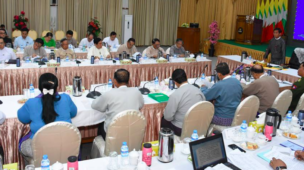Tempo de leitura: 2 minutos
As countries attract foreign direct investment (FDI) to special economic zones (SEZs), active support to promote clusters and linkages is key to maximizing development impact, according to a United Nations report.
United Nations Conference on Trade and Development’s (Unctad) World Investment Report 2019 pointed out that firms operating in zones have greater scope to collaborate, pool resources and share facilities especially in specialized zones.
“…But multi-activity zones can extract some of the benefits of colocation. Proactive identification of opportunities, matching efforts and training programs, with firms within and outside the zone, significantly boosts the impact,” the report said.
The report identified the Philippines as among the countries with the highest numbers of SEZs, along with India, the United States, the Russian Federation, Turkey, Thailand, the Dominican Republic, Kenya and Nicaragua. China alone hosts over half of all SEZs in the world in Asia.
SEZs are credited with more than 60 percent of the Philippines’s exports. This, as zone programs in many countries account for a major share of exports, particularly manufactured exports.
The report also cited early research on the Philippines indicating that the share of FDI flows going to SEZs increased from 30 percent in 1997 to over 81 percent in 2000.
“SEZs can make important contributions to growth and development. They can help attract investment, create jobs and boost exports—both directly and indirectly where they succeed in building linkages with the broader economy,” it said.
Likewise, zones can also support global value chain participation, industrial upgrading and diversification. “However, none of these benefits are automatic,” it added.
The report underscored the importance of strategic design of the SEZ policy framework and development program. “Zone policies should not be formulated in isolation from their broader policy context, including investment, trade and tax policies. The types of zones and their specialization should build on existing competitive advantages and capabilities. And long-term zone development plans should be guided by the SEZ development ladder,” it said.
The report said zone development programs should take a frugal approach. Unctad’s SEZ Sustainable Development Profit and Loss emphasizes the need for financial and fiscal sustainability of zones, as their broader economic growth impact can be uncertain and take time to materialize.“High upfront costs due to overspecification, subsidies for zone occupants and transfers to zone regimes of already-operating firms pose the greatest risks to fiscal viability,” it added.





Os comentários foram encerrados, mas trackbacks e pingbacks estão abertos.